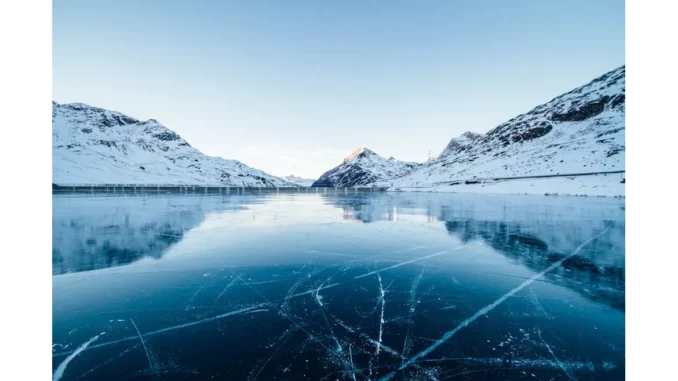
In the vibrant and ever-evolving city of Berlin, where the confluence of innovation and ambition often creates ripples of change, a young woman named Becca Ziegler is embarking on a unique journey. At merely 24 years of age, Becca has made a decision about her future that many might find unconventional: she plans to have her body cryogenically preserved after death. This decision has not only prompted curiosity but also challenged conventional notions about life and mortality.
I recently had the privilege of discussing this intriguing choice with Sarah Müller, a project manager at Tomorrow Biostasis, the company that has captured Becca’s interest and commitment. Sarah’s insights offered a captivating glimpse into the world of cryopreservation and the motivations driving individuals like Becca to invest in this nascent technology.
“Becca is emblematic of a growing demographic that fully embraces the potential of future technologies,” Sarah observed, her enthusiasm evident. “She belongs to a cohort of young professionals who are contemplating not just their careers and families but also the broader spectrum of their existence, including what may come after life.”
Historically, cryopreservation has been an obscure concept often relegated to the realms of science fiction or the whims of eccentric billionaires. However, it is now undergoing a transformation, becoming more accessible to the general public. Tomorrow Biostasis, established in 2020, provides its members with the opportunity to freeze their bodies posthumously and maintain them in a state of suspended animation. This service, available for a manageable monthly fee, represents a significant shift towards making cryonics a feasible option for a wider audience.
“Becca’s decision is deeply rooted in curiosity and an intrinsic appreciation for life’s potential,” Sarah elaborated. “She perceives cryopreservation as a means to explore future possibilities, rather than viewing death as an absolute conclusion.”
Becca’s relocation from California to Berlin to work in the field of educational technology is indicative of the typical profile of Tomorrow Biostasis’s clientele—tech-savvy, innovative, and open to new ideas. “Our members are predominantly in their 30s and 40s, often working within the tech industry, and are usually male. However, we are witnessing an increasing interest from women like Becca,” Sarah noted.
The cryopreservation process, as explained by Sarah, is meticulously orchestrated. Upon the death of a member, a specially equipped team is dispatched to initiate the cooling process immediately. The body is treated with cryoprotectants to avert the formation of ice crystals, which is crucial for preserving cellular structure. Ultimately, the body is transported to a facility in Switzerland, where it is stored in a pod immersed in liquid nitrogen at a frigid temperature of minus-200°C.
Despite the technological strides made in this field, cryonics is not without its sceptics. “To date, no individual has been successfully revived after cryopreservation,” Sarah acknowledged with candour. “It’s a gamble on future advancements in medical science, but we believe the prospects are increasingly plausible.”
Recent scientific breakthroughs have bolstered this optimism. Successful experiments involving the cryopreservation and revival of animal tissues have been conducted, and ongoing research efforts are focused on extending these techniques to human applications. Nonetheless, the path to reviving a human being remains fraught with uncertainty.
Holger Reinsch, a prominent figure in cryogenic research, maintains a sceptical stance regarding the feasibility of restoring life to a cryopreserved human. “The fundamental challenges of life-sustaining cryopreservation have not significantly advanced in decades,” Reinsch has remarked. His cautious perspective underscores the speculative nature of cryonics, even as proponents like Becca remain undeterred.
When questioned about potential regrets or ethical dilemmas associated with cryopreservation, Sarah conveyed a sentiment that resonated with Becca’s own outlook. “For Becca, it’s fundamentally about choice. Traditional options such as burial or cremation offer no possibility of a second chance. Cryopreservation, on the other hand, presents at least a glimmer of hope.”
Sarah’s reflections were enlightening. As she discussed the company’s mission and Becca’s decision, the delicate interplay between scientific aspiration and the harsh realities of mortality became apparent. “We don’t promise miracles,” Sarah concluded. “What we offer is an opportunity—a chance to participate in a future that remains unwritten.”
Becca Ziegler’s narrative is, in many ways, a testament to the indomitable human spirit—our quest for discovery, our willingness to embrace the unknown, and our enduring faith in the promise of technology. While cryopreservation continues to be a contentious frontier, it is individuals like Becca and pioneering companies like Tomorrow Biostasis that are challenging and expanding the boundaries of possibility.
As I departed from the interview, I found myself contemplating the profound implications of Becca’s choice. In a world where technology continually reshapes our perceptions of life and death, her decision to embrace the potential of cryopreservation stands as both an enigma and an inspiration.


Be the first to comment